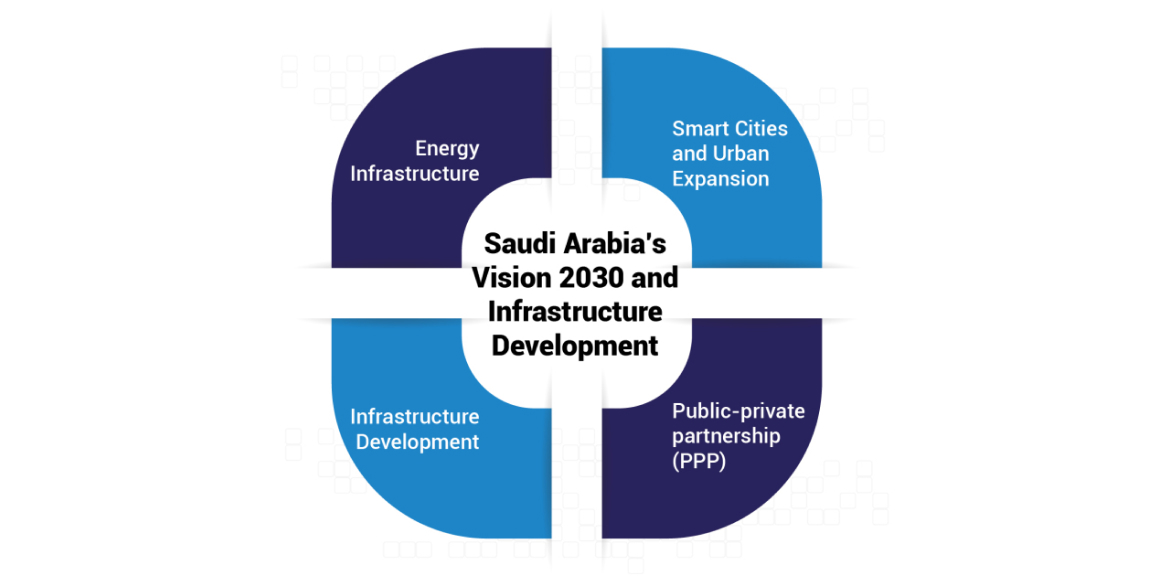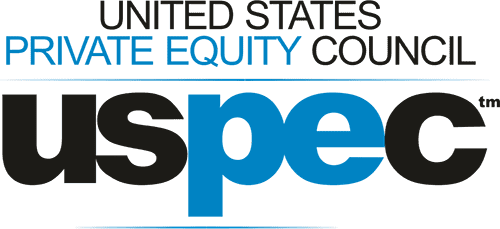Introduction
Saudi Arabia’s Vision 2030 is a transformative economic blueprint that aims to reduce reliance on oil and foster a diversified, investment-driven economy through industrial expansion, tourism development, and technological innovation. This plausible quest has placed the GCC at the epicenter of private equity development and is inviting investors to technology, renewable energy, and infrastructure domains. New markets, regulation, liberalization, and privatization have provided fresh opportunities for private equity firms in the region. This article describes how the concept of Saudi Arabia’s Vision 2030 revolutionizes private equity in the GCC.
The Economic Reforms Under Saudi Arabia’s Vision 2030
The long-term development goals of the Saudi Arabian economy described in Vision 2030 imply the need to diversify and increase competitiveness in the country’s economy to decrease the role of oil. These changes have been made to liberalize some previously restricted sectors for foreign investors and make the Kingdom more investment-friendly to foreign investors, including private equity firms.
Key Reforms Include:
-
Privatization of State-Owned Assets: A broad privatization initiative has been implemented, targeting sectors like healthcare, education, and utilities. These privatizations provide lucrative opportunities for private equity investments in previously government-controlled industries.
-
Foreign Direct Investment (FDI) Promotion: FDI flows have increased in the country due to reforms that have enhanced the ease of doing business and offered appropriate incentives to foreign investors in the Kingdom. The aim is to encourage international investors to enter the Saudi market by making it easier for them to do so.
-
Regulatory and Legal Overhaul: The government has introduced new reforms that make investment processes more straightforward and transparent, encouraging international and domestic investors.
-
Infrastructure Development: Significant funds are being committed to its development to facilitate the realization of long-term value growth for private equity funds investments in such projects.
Private Equity’s Expanding Role in the GCC Market
The private equity market in the GCC is changing, and this is partially linked to Saudi Arabia’s Vision 2030 and other economic diversification strategies. Central authorities are cutting their dependence on oil and gas revenues, and the support of private resources is a critical factor in financing developing industries.
Key Drivers of Growth:
-
Increasing Deal Flow: The region has witnessed a surge in private equity transactions, particularly in sectors aligned with national development objectives. Both mid-market deals and large-scale acquisitions are gaining momentum.
-
Sovereign Wealth Fund Influence: Government-backed funds are thus partnering with private equity houses to invest in strategic sectors such as infrastructure, technology, and sustainability. For instance, Reuters reports that Saudi Arabia’s Public Investment Fund (PIF) has been instrumental in underwriting new funds, including a newly announced US$ 2 billion Middle East fund with a well-known asset manager.
-
Venture Capital and Startups: Entrepreneurs are now successfully phasing the region, and private equity funds are investing in late-stage businesses that provide high potential in fintech, healthcare, and AI solutions.
Saudi Arabia’s Vision 2030 and Infrastructure Development
The Kingdom of Saudi Arabia's Vision 2030 has strategically placed infrastructure development among the key strategies for changing the kingdom's socio-economic model and boosting the private sector. The government is investing substantially in transport infrastructure, smart cities, and logistics zones to woo foreign investors and improve competitiveness.
Key Infrastructure Developments Driving Private Equity Growth:

-
Smart Cities and Urban Expansion: Mega-projects are implementing the Information Technology Revolution, Special AI-based architectural design, and sustainable solar energy for urban growth. These are intended to help accommodate the development of the population while increasing trends in production and economic development.
-
Public-private partnership (PPP): The country is implementing infrastructure projects quickly, increasing PPP programs. These programs allow private equity firms to invest in sectors such as utilities, housing, and commercial buildings.
-
Infrastructure Development: The development of new airport facilities, high-speed rail tracks, and port improvements in the GCC are enhancing the global trade connection, and Saudi Arabia is becoming a logistics center.
-
Energy Infrastructure: Renewables such as solar and hydrogen projects are changing the landscape through renewable energy investments and creating new investment avenues.
Capital Markets and Regulatory Reforms Supporting Private Equity
Saudi Vision 2030 has transformed the region's capital markets, leading to extensive reforms to grow private equity. These changes aim to elevate the GCC's attractiveness as an investment region, increase the availability of financing, and expand the private sector's participation.
Key Reforms Include:
-
Strengthened Regulation: New regulations have been implemented to ease the entry of foreign investors into the market and ensure a sound regulatory market. This has led to an environment more transient than conducive to investors.
-
Private Sector Integration: The government has attempted to increase privatization and participation, especially in big projects such as infrastructure, energy, and healthcare needs. Private equity investments have been promoted to be used in public-private partnership (PPP) initiatives to be developed.
-
Equity Markets Reforms: The operations to improve the domestic equity market and to help private companies access the equity market have been the key components of these reforms. Such moves ensure there are more exits opportunities for private equity investors in the market.
-
Tax Incentives: Introducing favorable tax regimes for private equity funds, such as reduced capital gains tax rates, can improve the return on investment.
Cross-Border Investment Trends in the GCC
Vision 2030 in Saudi Arabia has made regional shifts in cross-border acquisition in the GCC as countries work hand in hand to diversify their economies. While the move started in Saudi Arabia, it has created a domino effect in the region. Economic diversification has enhanced the perception of the member countries of the GCC as investment destinations and has also ensured higher integration.
Some of the above trends affecting the cross-border investment in the GCC include:
-
Elevated regional cooperation: The GCC countries collaborate on initiatives to strengthen investment portfolios. This collective approach contributes to developing a stronger regional economy and enhances the competitiveness of a particular market.
-
Private equity firms targeting regional deals: After changes in regulation and the reform of the entire economy, investment firms are beginning to see the GCC as one market.
-
Regional Infrastructure Development: Emphasis will shift to infrastructure sectors such as transport, renewable energy, and smart cities, which can present numerous cross-border opportunities.
-
Stable sources of funds: The sources of funds are quite diversified, with foreigners in the market, sovereign wealth funds, and other international players investing in GCC.
Future Outlook: The Next Phase of Saudi Arabia’s Vision 2030
A new phase of Saudi Arabia’s Vision 2030 is just around the corner, bringing more diversification and development to the overall economy. The government is keen on diversifying innovation, technology, and sustainability, opening more doors for private equity investment. New policies and reforms will enforce the privatization of state-owned assets and increase the number of foreign investors in the region.
Some of the major priorities to be achieved in the future phase of Vision 2030 include:
-
New Investments in the Digital Economy: The emerging concept of Smart cities, enhanced digital infrastructure and technology-based concepts like artificial intelligence will continue to attract private equity investments from varied sectors, mainly financial technology and e-commerce.
-
Sustainable Energy: The push for green power will grow exponentially, especially in emerging markets, with investment in green fields like solar and green hydrogen to provide private equity avenues.
-
Sustaining Growth in the Tourism Sector: Large-scale projects such as mega-resorts and urban development projects will exert investor demand, which is mainly focused on hospitality, leisure, and entertainment.
Conclusion
Saudi Arabia’s Vision 2030 is repositioning private equity across the GCC, and subsequently, the region will emerge as an essential entity in the technology, infrastructure, renewable energy, and health sectors. The legal changes concerning the regulation of the stock markets are improving investors’ confidence and capital markets development, and PPI contributes to large-scale projects. The investors’ presence and economic diversification remain critical in driving the region's growth for international investments. Amid changes in policies, private equity as an industry will continue to be crucial to growth in the long term.







